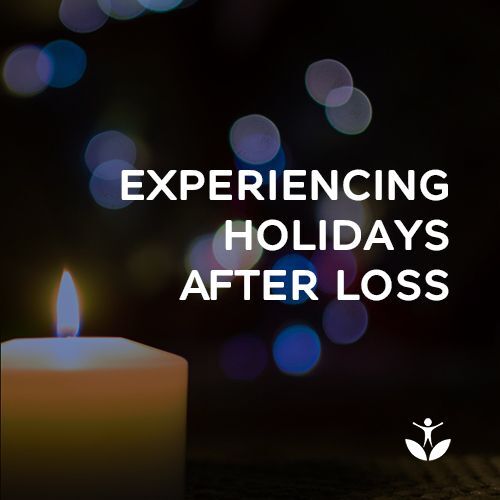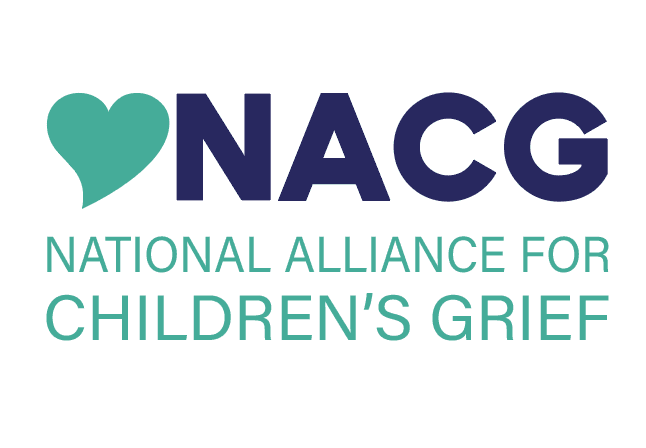
“My life was suddenly divided into BEFORE and AFTER, and there was no going back to BEFORE. But then I realized I had a choice to live the AFTER. I had to decide.”
-- Anonymous
The holiday season is a special time for families and communities; however, it can be challenging for those who experienced the loss of their loved ones. Holiday memories of those who have died whether recently or from many years before, act as constant reminders of loss, and watching others celebrate may be painful and overwhelming. People may find that the waves of grief are overpowering during this time of the year. Specifically, they may experience periods of deep sadness, a renewal of their grief, or sudden and unexpected reactions of anger, despair, or fear. These responses may occur at any point after a death has occurred. Grief is constantly evolving and, at times, can be an unpredictable process and fortunately there are activities a person can do to help themselves or others get through this potentially painful period of time.
Acknowledge Your Feelings
An important step in coping with grief during the holidays is acknowledging that the holiday season may be difficult and can bring up intense feelings. As much as possible, allow yourself to feel your feelings as they arise. All your feelings are valid, and there is space for them all. Try to practice self-compassion and give yourself permission to feel without judgment. Grief comes in waves, ebbing and flowing. It is important to ride the waves and learn to swim.
Practice Self-Care
Practicing self-care is another crucial step to help those who lost loved ones get through the holiday season. Self-care during the holiday season means making intentional and active efforts to nurture yourself physically, emotionally, spiritually, and socially. You may engage in physical exercise or writing/journaling as an outlet for your grief. You may avoid the hustle and bustle of the holiday season and surround yourself with those who support and care about you. Avoid overindulging as a way to cope with intense emotions and focus on activities that allow you to take care of yourself.
Set Realistic Expectations for Yourself
Remember that sometimes anticipation of a holiday can be more difficult than the day itself. Remind yourself that this time of year is different, and you can prepare for it by making specific plans and obtaining the support you need. You may want to examine the tasks and ask yourself if you can still handle past responsibilities and expectations. Think ahead to consider who will fill the vacated roles caused by the death of your loved ones. Allow yourself to accept others’ offers to cook, shop, decorate, and so on. There is no right or wrong way to handle holidays. You are in complete control of your plans as to what you will do during this time of the year.
Honor Old Traditions and Develop New Holiday Traditions
Continuing to observe old traditions can be a helpful way to honor, remember, and celebrate the person who died. Doing so allows you to keep their memory present and maintain the bond with the loved one who is no longer with you. Additionally, you may create a new tradition or ritual that accommodates your needs. Discuss with your family the activities you want to include or exclude this year. Some examples of new rituals and traditions include lighting a candle in honor of your loved one, making your loved one’s favorite food, putting a bouquet of flowers on your holiday table in memory of your loved one, and placing a commemorative ornament on the Christmas tree. Developing the new traditions does not mean throwing away the old. Just like the saying, the song ended, but the melody lingers on.
Finding Ways to Support Others
If you want to support your family, friends, students, and colleagues during the holiday season, giving your presence might be the best holiday gift you could give them this year. Be thoughtful about holiday greetings, as “happy holidays” can feel out of place for those who lost loved ones. Try saying, “I’m thinking of you, especially during the holidays.” or “I imagine this holiday may be tough for you. How are you doing?” Be mindful that supporting someone does not mean cheering them up. Be careful with expressions like, “Where’s your holiday spirit?” or “At least you still have….” Instead, convey your genuine care by saying, “It’s okay for you to feel however you feel this holiday season. I’m here for you.”
Holidays are some of the roughest terrains we navigate after a loss. They can be very sad, but sometimes we may catch ourselves doing feeling well, and we may even have a brief moment of laughter. If you experience happiness, allow it to enter your grief space and be present with the people around you. Connecting with those who understand or are going through a similar situation can provide new perspectives. It also affirms that you are not alone in your experiences, and others are able to offer much-needed support. It may be beneficial to seek grief counseling or join a grief support group. Knowing that you are not alone can make a world of difference.
The Children's Bereavement Center “CBC” is a 501(c)(3) nonprofit organization providing FREE grief support groups for all ages (4+). Lift From Loss® is a division of CBC providing support for young adults and adults. For additional resources, visit our website at www.childbereavement.org. To register for our free virtual grief support groups, call us at (888) 988-5438 or e-mail support@childbereavement.org.









